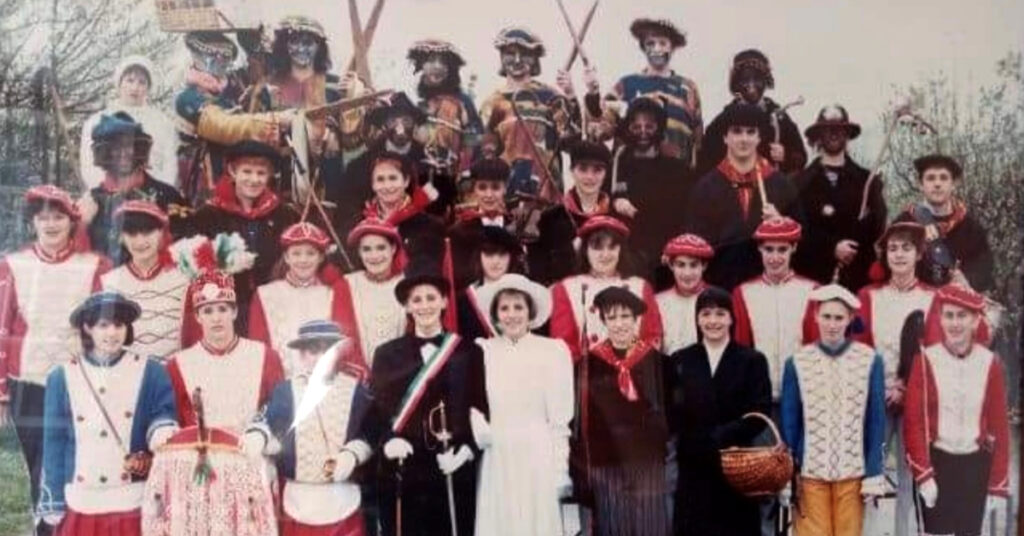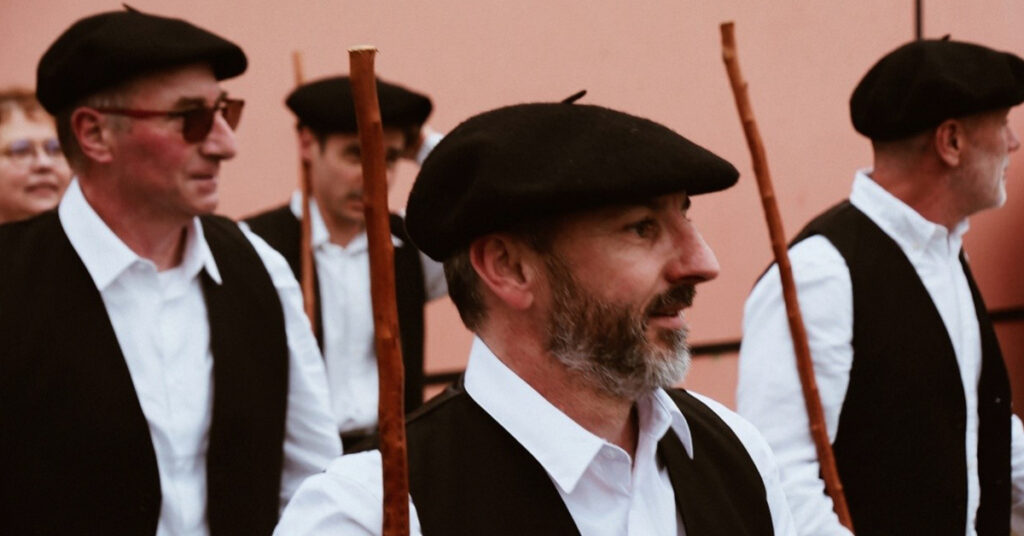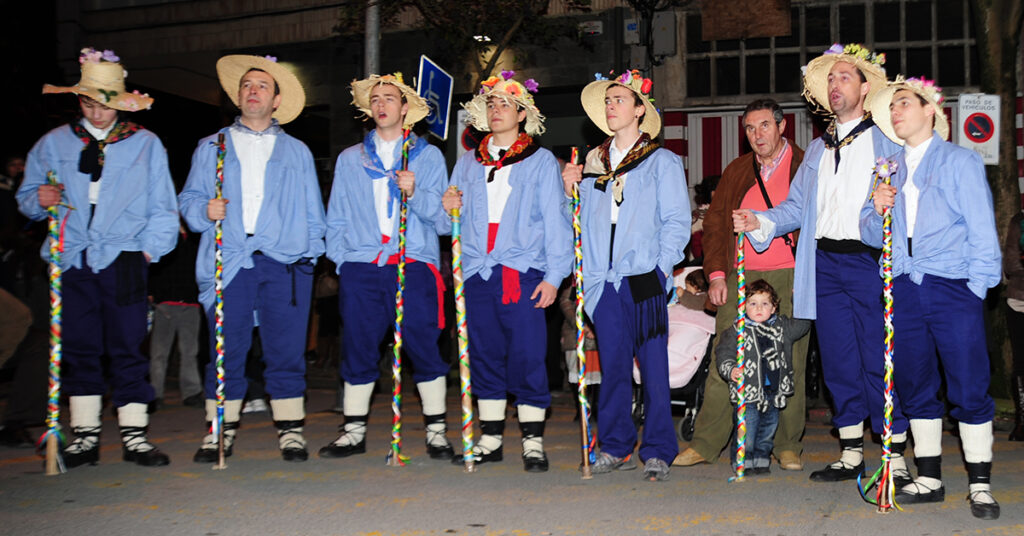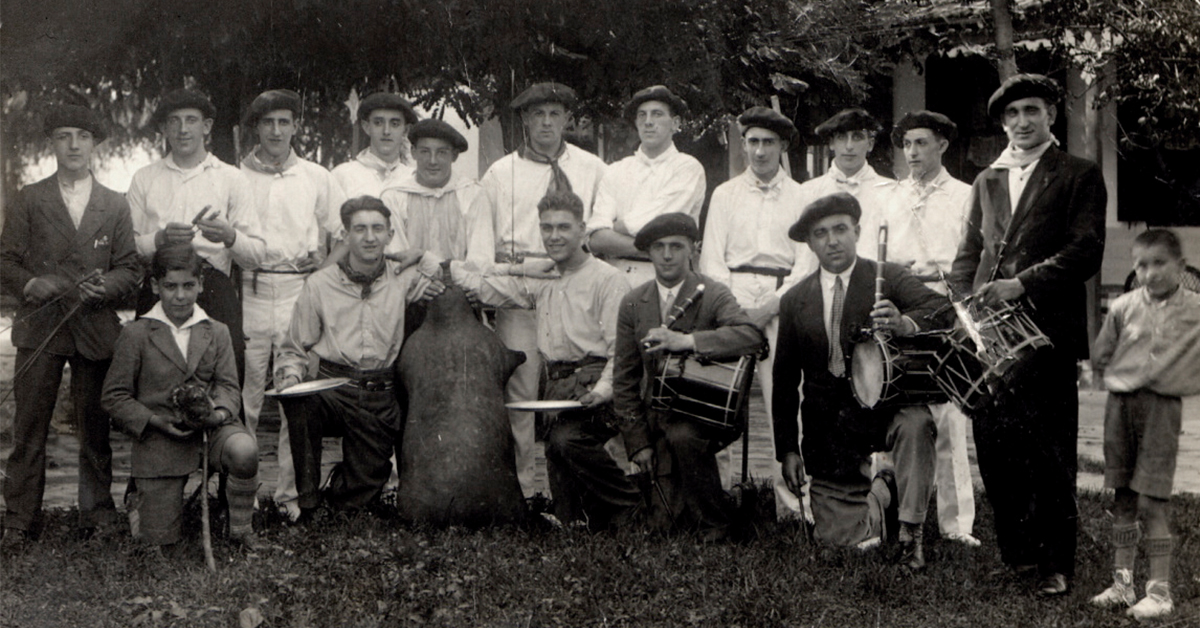Archives
Masquerades are the traditional carnivals of the Soule region or Zuberoa as it is known in Basque. Society is divided into two groups in the masquerades. On the one hand, the reds, who represent the good, honourable and formal society. They include the five main characters: the lord and the lady, the peasant man and woman, and the marshals. On the other hand, there are the unscrupulous, unkempt and dirty blacks. That group includes the gypsies, who have been settled in Zuberoa since time immemorial, even though society would continue to harbour prejudices for ages. There are also the characters depicting trades of old: swords sharpeners, horse gelders, or the boilermakers who repaired leaky boilers. In addition to reflecting society, the masquerade aims to be satirical and criticise it.
Innovation could be said to have come tradition at the Hartzaro festival in Uztaritze. The local residents have chosen carnival time to hold the annual festival for the last 28 years. Even though the Pyrenean bear did not hibernate last winter, the festival has celebrated its awakening in fine style.
Even though Carnival has been called the highlight of winter at other times in this country, the celebration of St. Agatha’s Feast Day – with the preamble of Candlemass and St. Blaise’s Day – were what could be called a “festive trilogy” combining the sacred and entertainment, in terms of Catholicism and leaving the Christmas cycle to one side.
Wine and the skins used to transport it are a common feature of the country’s festivities. The wineskin gave its name of dances and routes (edate dantza), and is a feature of sung dances or at the centre of the festive celebrations of young people (zaragi mutilek, mutil ardoak, eskotekoak, etc.) where the wineskins are passed around and are the usual way to invite the revellers to drink wine. Therefore, it is not far-fetched to think of the skin inflated with air and drained of wine as a symbol to tell the community that the festive revelry has come to an end and it is time to return to the daily chore.








